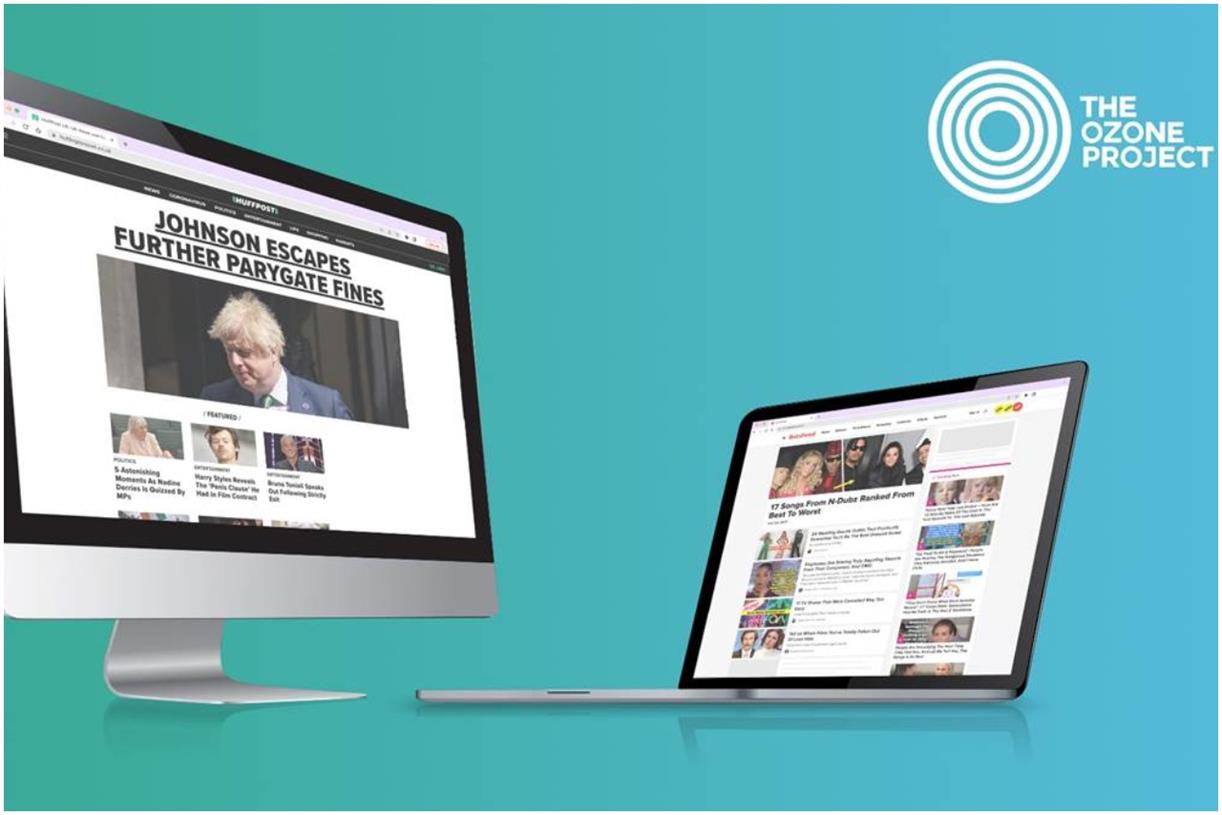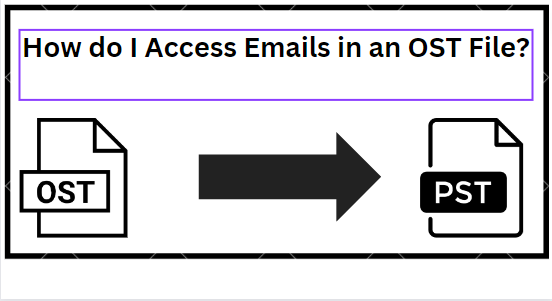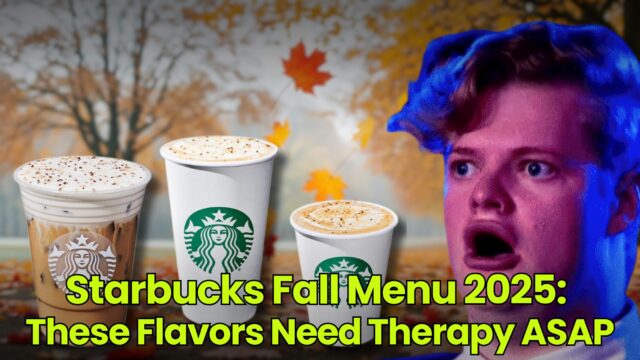Pepsi’s Marketing Strategy: A Look at How the Brand Stays Ahead of the Competition
Renowned all over the world, Pepsi is definitely a necessary component of people’s gatherings and meals! But have you ever wondered how this company came to be, given its evident success? Beginning as a small operation in North Carolina...
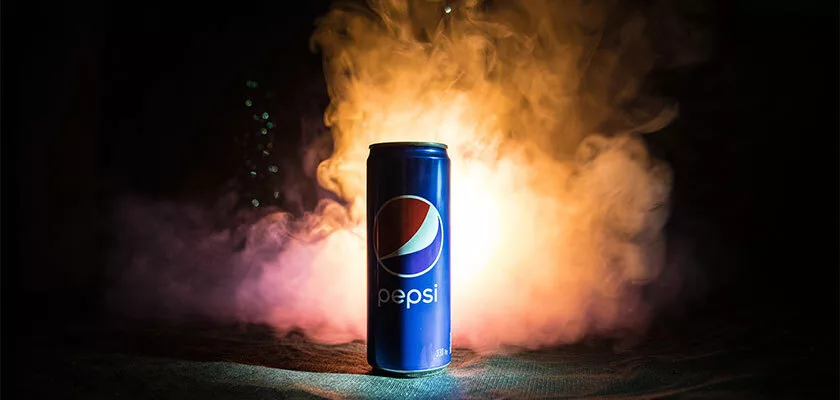
Renowned all over the world, Pepsi is definitely a necessary component of people’s gatherings and meals! But have you ever wondered how this company came to be, given its evident success? Beginning as a small operation in North Carolina in 1893, Pepsi has grown into a global phenomenon, with distribution in over 200 countries. As one of the largest food and beverage companies in the world, PepsiCo has had a significant impact on the marketing industry. PepsiCo’s marketing strategy is one that every marketer ought to look at to gain insight into because it has an extensive record of effective marketing campaigns and creative approaches.
In this article, we’ll take a closer look at Pepsi’s marketing strategy, including its history, target audience, advertising strategies, experiential marketing campaigns, and more. Let’s dive right in!
The History of Pepsi
Invented by Caleb Bradham in 1893 under the name of “Brad’s Drink”, Pepsi was initially sold in his drugstore to relieve indigestion. After being renamed as Pepsi-Cola in 1898, Pepsi quickly became a competitor to Coca-Cola, and by the 1930s, it was the second most popular soft drink in the world. In the following decades, Pepsi continued to grow in popularity, and in 1965, the PepsiCo conglomerate was formed. Over the years, Pepsi has introduced various flavors and advertising campaigns to remain competitive in the soft drink market until today. But how did Pepsi achieve dominance in this highly competitive market? What are the secrets to the company’s marketing strategy?
Pepsi Marketing Strategies
PepsiCo has been a major player in the food and beverage industry for over a century. The company has a diverse portfolio of brands that includes Pepsi, Frito-Lay, Quaker Oats, Tropicana, and Gatorade. The brand’s marketing strategy is focused on creating a strong emotional connection with consumers through a combination of different marketing techniques and the company’s marketing campaigns are designed to appeal to a wide range of consumers, from young adults to families, and from health-conscious individuals to sports enthusiasts.
One of the key elements of Pepsi’s marketing strategy is definitely its strong brand identity. Pepsi is known for its fun, youthful, and aspirational image, and it uses this image to connect with consumers around the world. You could find it challenging to create a distinctive brand identity for your business and question how to do it the way Pepsi did; nevertheless, marketing agencies can help you achieve this.
The company’s advertising campaigns often feature celebrities and popular culture references, and they’re designed to appeal to a wide range of consumers. The brand’s packaging is another key element that sets it apart from competitors; customers of all ages love the red, blue, and white logo.
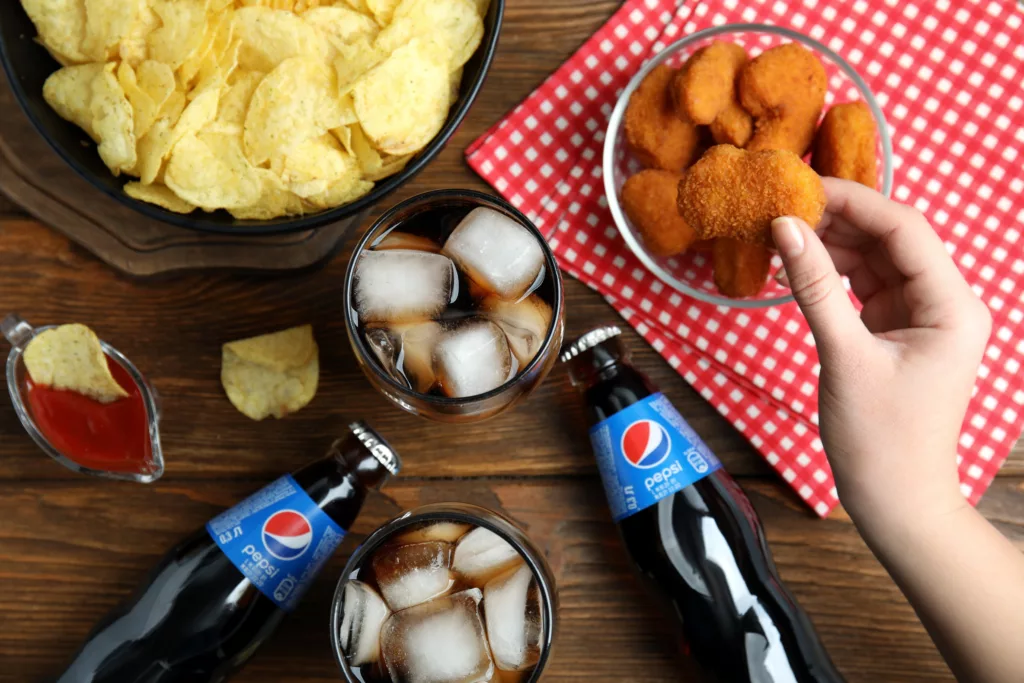
We all know that Pepsi has made significant investments in memorable and creative advertising campaigns; they have collaborated with well-known figures from the world of entertainment including Michael Jackson, Britney Spears, and Kendall Jenner. These endorsements help in expanding Pepsi’s audience as well as improving the brand’s reputation and image. Here is one of Pepsi’s most effective advertising campaigns:
Michael Jackson – Pepsi Generation Campaign
Aimed at young adults, Pepsi launched its “Pepsi Generation” campaign in the 1960s featuring legendary Michael Jackson.
PepsiCo’s Target Audience and Market Segmentation
PepsiCo targets a wide range of consumers, including young adults, families, health-conscious individuals, and sports fans. The company designs its marketing campaigns to appeal to different market segments, and it uses market segmentation to target particular consumer groups with customized marketing messages. Since it enables the brand to operate across numerous markets and employ a wide range of marketing strategies, we must say that its targeting strategy is particularly significant. For instance, the company markets its Tropicana brand to health-conscious people while marketing its Gatorade brand to athletes and sports enthusiasts.
Below you’ll find an example of the company’s Gatorade Campaign featuring Lionel Messi:
Lionel Messi x Gatorade | Inner Voices
Sponsorship and Partnerships
In addition to celebrity endorsements, Pepsi also sponsors a variety of sporting and other cultural events helping the company to associate its brand with positive experiences. With these collaborations, as the primary sponsor of numerous well-known sports events like the Super Bowl, NBA, and UEFA Champions League, Pepsi has established an important association between brands and sporting events.
Despite being a prominent sponsor of these sporting events, Pepsi has also supported many shows and festivals, including Coachella and the Super Bowl Halftime Show. PepsiCo is able to market its products to a large audience both at the event and in the surrounding area by sponsoring events like these.
Pepsi Super Bowl Half Time Show 2020 x Shakira & Jennifer Lopez
Pepsi’s Social Media Presence
Pepsi is also active on social media, and it uses this platform to connect with consumers and promote its products. The brand has a large following on platforms like Facebook, Twitter, and Instagram, and it uses these platforms to share news about its products, run contests, and engage with consumers.
With over 1.5 million followers, Pepsi’s Instagram account is always very active and engaging. The brand posts high-quality images with people enjoying the beverage as well as familiar faces like Lindsay Lohan to ace the instagram marketing game. Social media requires dedication and can become highly time-consuming to engage with your brand’s target audience. If you struggle to maintain a strong social media strategy as a business, we advise you to collaborate with social media marketing agencies in USA to have a captivating social media presence, similar to what Pepsi has.
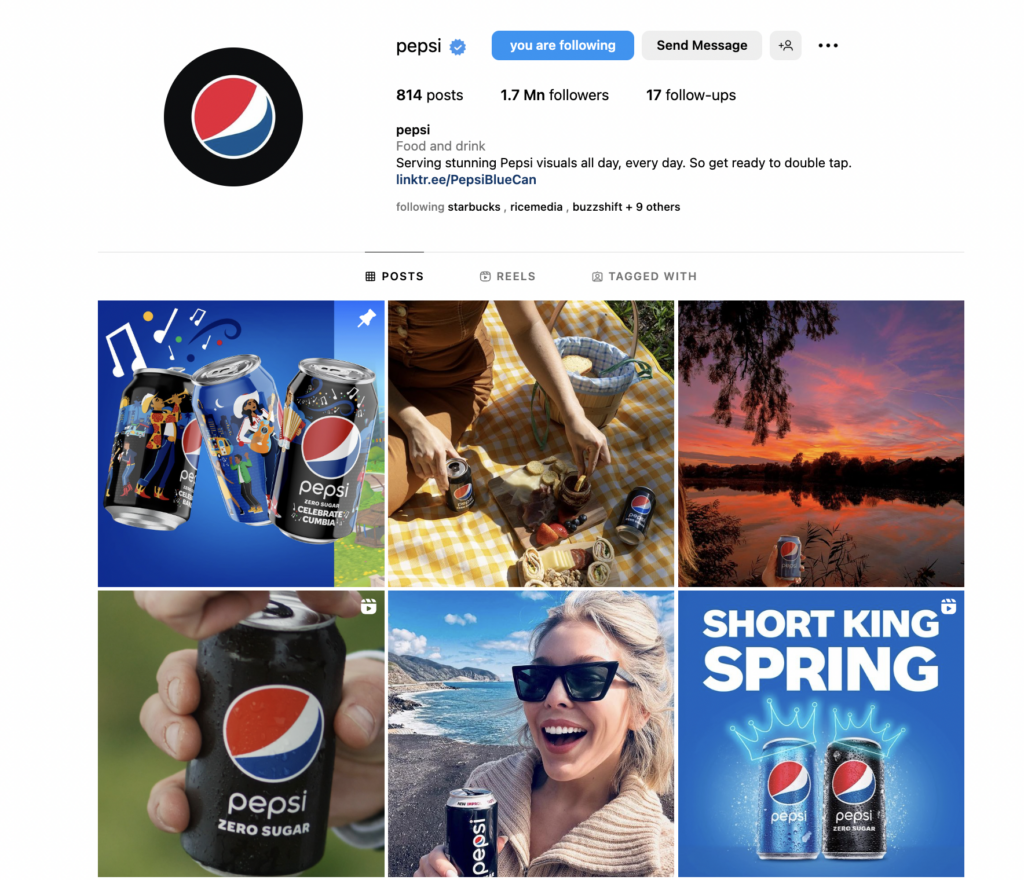
A Quick Look at Pepsi’s All Time Rival: Coca Cola
PepsiCo and Coca-Cola are two of the largest FMCG companies in the world, but they have several key differences in their products, marketing, and business strategies. While both companies produce carbonated soft drinks, PepsiCo has a more diversified product portfolio that includes non-carbonated beverages like Gatorade, Tropicana, and Aquafina. Coca Cola, on the other hand, has focused more on carbonated soft drinks and has a smaller portfolio of non-carbonated beverages.
Their marketing strategy differs from each other as well. Pepsi has traditionally targeted younger demographic with its marketing campaigns, using celebrity endorsements and sponsorships of music and sports events to appeal to this audience. Coca-Cola marketing strategy, meanwhile, has aimed for a broader, more universal appeal with its “Share a Coke” and “Taste the Feeling” campaigns.
And finally, while both companies have strong brand identities, PepsiCo has positioned itself as a more youthful and innovative brand, while Coca-Cola has emphasized its long history and tradition. Both brands are no doubt major players in the FMCG industry and are constantly innovating to remain competitive. If you want to reach and convert high-value consumers as well, you can consider finding FMCG marketing agencies to assist you in achieving your company objectives.
Conclusion
PepsiCo has a long history of successful marketing campaigns and innovative strategies that have helped it to become one of the largest food and beverage companies in the world. Through a combination of advertising, experiential marketing, and social media engagement, PepsiCo has been able to create a strong emotional connection with consumers and build brand awareness and loyalty. Most crucially, PepsiCo has been able to increase its reach and growth by adjusting its marketing strategies to local cultures and preferences. Certainly, each of these elements plays a part in Pepsi’s success as a global brand.

 Troov
Troov 







![A Better Strategy for Media Buying with Hassan Bash [VIDEO]](https://www.digitalmarketer.com/wp-content/uploads/2022/05/Hassan_Bash_Media_Buying_Thumbnail-1.png)


